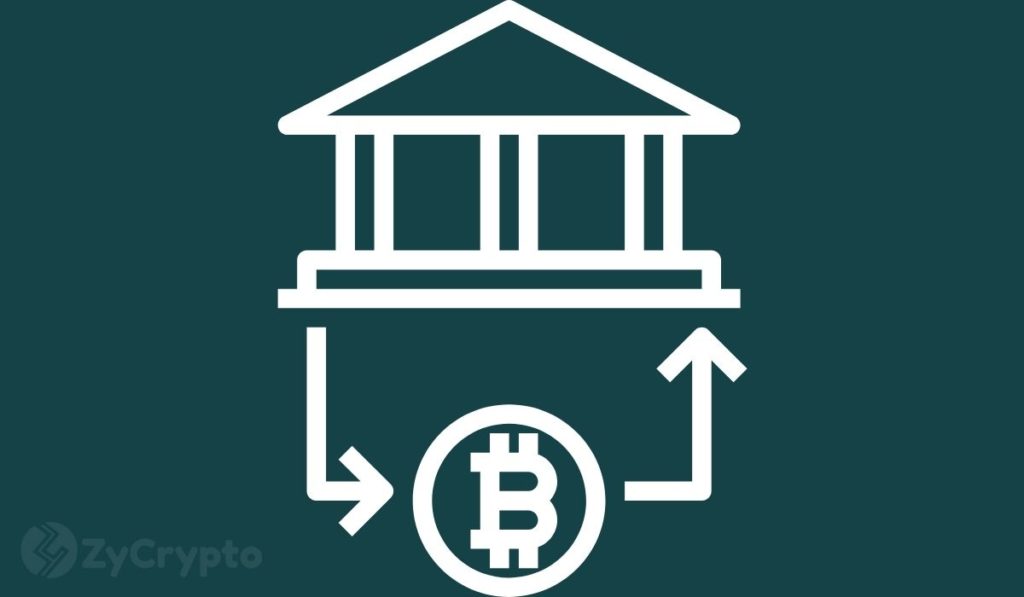
2018-12-10 20:37 |
Satoshi Nakamoto designed Bitcoin (BTC) as an alternative to centralized payments, to exist independently from the flawed banks. As central banks tighten the valves of monetary policies, this aspect of cryptocurrency may come back to the foreground.
Bitcoin and the other cryptocurrencies are no longer a cypherpunk’s dream, but a whole new asset class. Some see institutional investors, which generally have far larger order books and deeper pockets than the retail investor, as a solution to kickstart mass-adoption of virtual currencies.
But what is the incentive for institutional investors to buy cryptocurrencies, like Bitcoin? Markets are a fraction of what they once were and increasingly volatile. This makes them unsuitable for large-scale investments. There is every chance for investors to lose millions.
Considering that many institutional investors are entities such as pension funds, which need to guarantee a certain level of long-term stable returns for their members, a move into digital assets could be disastrous.
The accepted logic is that cryptocurrencies may well work as a speculative short-term punt, but are unsuitable as a long-term means to store value.
Are fiat currencies stable?This would be accurate only if fiat currencies themselves were reliably stable. But that’s not always the case.
Crypto advocates have pointed out examples of where fiat currency has failed as a method of payment. In recent years, the people of Zimbabwe and Venezuela been victim to hyperinflation. Crypto projects like Dash (DASH) have rolled out their services to the developing world, and met with a reasonable amount of success.
But we can also look closer to home. Whether it’s the dollar, the pound, the Japanese yen or the euro, the value of fiat currencies relies entirely on sensible economic management by governments.
That can change quickly: the pound has dropped against other global currencies, as uncertainty around Brexit grows. The Chinese renminbi has had its worst day in two months as the country’s economic outlook looked progressively worse against the backdrop of a trade war with the US.
No central bank can perfectly predict what affects a fiat currency, and on the question of quantitative easing (QE), only a few can guess. QE is a tool used by central banks to create money that can then be used to buy government debt, which lowers interest rates and provides capital to reinvest. Governments used it to reinvigorate the global economy in the aftermath of the financial crash.
QE is controversial. Critics see it as a roundabout way for central banks to print more money. Increasing the supply necessarily lowers the price, leading to devaluation and inflation. The Bank of England, has injected more than $400bn since 2008, and more than $12 trillion have been pumped into the global economy in total. No one knows what the long-term effects of the latest Quantitative Easing are, but some worry it will have a significantly detrimental effect on the economy.
Quantitative TighteningThis is why institutional investors may turn to cryptocurrency, and specifically Bitcoin. At a crypto summit, hosted in Bloomberg’s new London offices, speakers on the institutional panel confessed their concerns over QE. These included representatives from two investment funds: Yves Choueifaty, the CIO of Tobam, and James Bevan, CIO of CCLA Investment Management.
According to the panel, Bitcoin is an attractive long-term investment because it could be used as a hedge to QE. Funds aren’t as confident as they once were in the value of fiat currencies; an investment in crypto helps diversify value.
The world is on the cusp of a new period of Quantitive Tightening (QT), the panelists said. Central banks are gradually reducing the amount of money being poured into the economy, and the market has already felt the effects.
The European Central Bank (ECB) provoked a mass equity sell-off in February when it started to taper off QE. The slump in October may well have been a reaction to the news that central banks were shrinking their bond portfolios.
Many signs indicate that a recession may be overdue, and the transition to QT may be among the main culprits. The world has gotten used to a plentiful supply of cheap fiat; turning off the taps will serve as a shock. This will prove doubly nasty in parts of the world that have come to rely on a strong and stable currency.
Few people today seriously think Bitcoin will become an everyday means of exchange. It’s far too slow and expensive for that, and in any case, most fiat currencies would have to fall quite far before they matched BTC in volatility.
But Bitcoin has its advantages as a store of value with a price determined by the free-market. As a government-proof, bank-proof asset that cannot be manipulated by economic planners, institutional money may look to cryptocurrencies as a way to hedge risk.
The author is invested in BTC, which is mentioned in this article.
The post Can Bitcoin Hedge Against Quantitative Tightening? appeared first on Crypto Briefing.
origin »Bitcoin price in Telegram @btc_price_every_hour
Bitcoin (BTC) на Currencies.ru
|
|

























